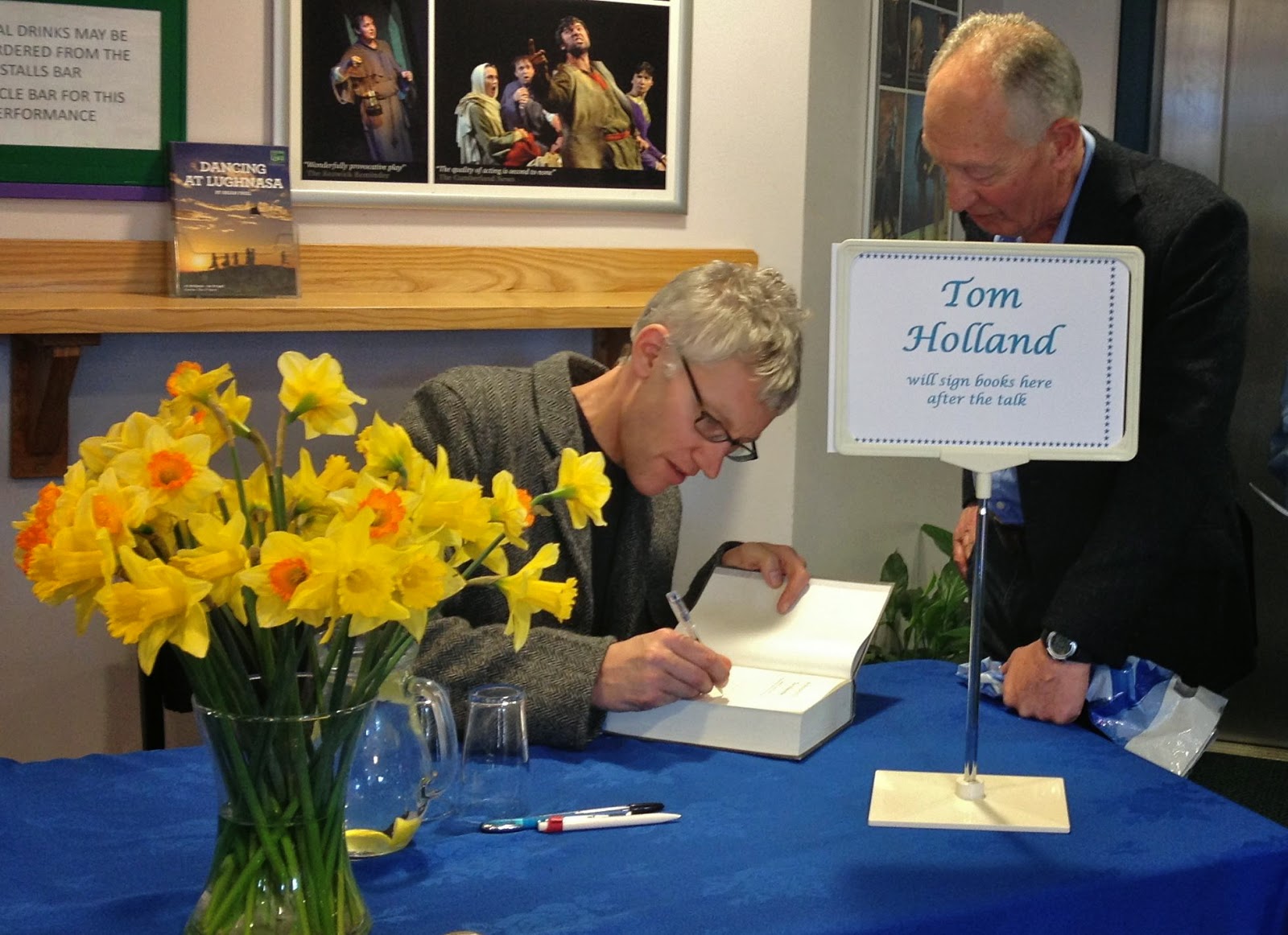 |
| Landing stages at Theatre by the Lake, Keswick, March 2014 |
This is the last of my three posts about Words by the Water (a festival of Words and Ideas, staged by Ways with Words) (#WBTW14), which finished yesterday at Theatre by the Lake in Keswick, Cumbria.
During the festival, I chaired three speakers, and my last was Professor Barbara Graziosi of the University of Durham. She was talking about her book The Gods of Olympus, A History, which came out last year.

The very first sentence of her book is: “This book is a history of the Olympian gods - the most uncivilised ambassadors of classical civilisation.” This sets the tone for an erudite but fast-paced romp through history in the wake of the "multifaceted, migrating Olympian gods". Even when they have been banned and relegated to hidden altars or the role of demons in nursery stories, they have survived and reappeared again and again.
Barbara was great company and we swopped stories about our careers and our kids over lunch before her talk. She was wearing unremarkable dark clothes, just as my two male speakers had. But, unlike them, she changed into a pair of brightly mottled red, green and white platform heels just as we went through to the stage. For me, that summed up her sense of fun against a serious and well researched background.
The audience were very attentive, especially when she explained how Arabic translations of Ancient Greek texts were made at the House of Wisdom, started by caliph al-Ma'mun and his father in what is now Iran (see page 2 of the link). This institute of learning in Baghdad kept the Ancient Greek texts alive during the European 'Dark Ages' and itself survived for 400 years until 1258 AD.
 |
| Barbara Graziosi in discussion |
From her book I learned that in Plato's ideal city (see The Republic), "Homer and Hesiod would have no place, because their poems spread false and degenerate rumours about the deities"; and that "In Renaissance art, the gods of Olympus tended to appear in lush settings: fresh meadows, riverbanks, shady woods, the seaside. In that respect too they were exploiting a gap in the market, for Christianity was essentially a city religion," a thought that had not occurred to me.
Afterwards, I gave Barbara a copy of The Boy with Two Heads as she said she was interested in my descriptions of Zeus and his statue at Olympia. For me, her book has made it easier to imagine how the Ancient Greeks saw their gods, how they felt about them and the many ways in which they questioned their existence.
It also poses and partly answers the question of why we are still conscious of them, still writing stories about them, and some people still worship them. I haven't found an answer that completely satisfies me, in spite of Barbara's help. Perhaps, like so many others in the course of more than two and a half millennia, I never will ...
photographs © Julia M Newsome
It also poses and partly answers the question of why we are still conscious of them, still writing stories about them, and some people still worship them. I haven't found an answer that completely satisfies me, in spite of Barbara's help. Perhaps, like so many others in the course of more than two and a half millennia, I never will ...
photographs © Julia M Newsome










